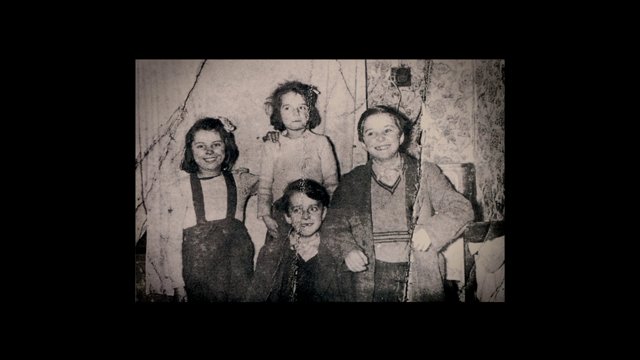There is nothing more wonderful in cinema than the unexpected. In a House that Ceased to Be showed at the IFI Stranger than Fiction documentary festival last year, and as the lights went down this reviewer had a pretty fixed idea of what the film would be about. My knowledge of Christina Noble extended to her foundation and the efforts she made abroad to help children on the streets of various places that are difficult to pronounce. What was expected was a hagiography, stories to warm the heart and make you (and me) feel less guilty for doing nothing to help those who cannot help themselves. To paraphrase Sam Elliot as the narrator of The Big Lebowski, “it feels good to know she is out there for us sinners”. We could take comfort in that, pay our money to let the film confirm it and then slip back easily into our lives. Instead, director Ciarín Scott plunges us without warning into the hellish nature of Ireland’s collective past. It is the disturbing, disgusting and shameful past that threatens to overtake us. With In A House That Ceased to Be, Scott has fashioned cinematic catharsis and, in a nation that desperately needs it, that catharsis is an outpouring full of both relieved joy and guilty anguish.”
The film begins in places as far flung as Vietnam and Mongolia as we see Christina and various members of her foundation on the streets trying to help the poorest of children. Scott sets out her initial stall with footage of the exhaustive work that Noble Foundation does. The hospital/orphanage where ‘Mama Tina’ (as she is known to the children) works is in Ho Chi Minh City in Vietnam. More importantly we see how much Noble passionately cares for the people in her stead, her abrasiveness at the bureaucracy holding her back and the way that she cuts straight to the chase with her desire and steely will to help these children. This area is of course a worthy and fine reason for a documentary, but it is also a somewhat predictable one. But of course, like all great cinema it is the ‘why’ that is the meat here and it is when the documentary shifts its focus back to Ireland, the ‘why’ becomes very apparent.
The brilliance of Scott’s documentary is twofold. First, she lets Christina Noble tell her own story in her own time. Secondly, she illuminates that story to show that this is not just a story of one woman. It is the story about Ireland, of the shameful practices carried out by the Catholic Church with the blessing and consent of the Government. For those who are unfamiliar with Christina Noble’s background story, the details are best discovered whilst watching. As a people, we can probably guess what the story is about having seen and heard a version of it play out across cinema and television screens for what now seems like forever. What marks out Noble’s story as quite unique is her fierce character, her absolute fury at what was allowed happen to some of the most unfortunate people in this country. The feelings here are raw, the emotion threatening the surface again and again. There will be many tears shed watching this as there was when it played at the Stranger than Fiction festival (mine included). Those tears were of sadness and pity but mostly righteous anger.
Lest it seem like a totally grim exercise, anyone who has ever seen Noble interviewed will know that she is extremely witty, and this is a film with its share of laughs. Scott is a smart enough director to know how great her subject is, and allows her free rein. This makes for some remarkable scenes including a conversation with a man who may or may not be a priest. There is also a reunion towards the end that is quite beautiful. Scott knows the importance of it and there are some wonderfully intimate moments in the scene, chiefly the constant touching and hugging as if the people themselves cannot quite believe they are here, somewhat fractured but alive. In the last few years there have been some remarkable documentaries made in Ireland and, crucially, quite a few of them were made by women in a male-dominated industry. Aoife Kelleher’s One Million Dubliners, Pamela Drynan’s Where I Am and Claire Dix’s Broken Song are superb films all worthy of your time and attention. With In a House that Ceased to Be, Ciarín Scott has somehow moved the form up a level. By turns beautiful, tender and raw, it will be amongst 2015’s finest films.
https://www.youtube.com/watch?v=-q9aesjHjeU

